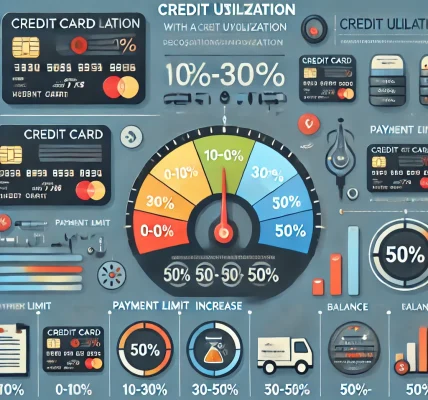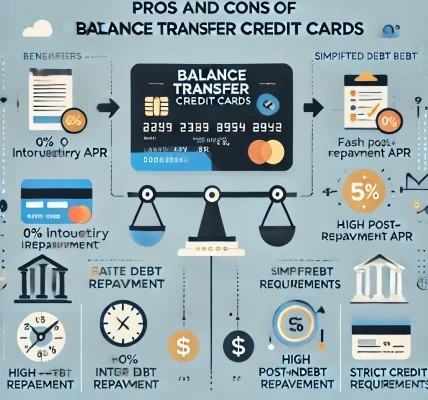Building credit from scratch can feel overwhelming, but it is an essential step toward financial stability and independence. Whether you are a young adult, a newcomer to a country, or someone looking to establish credit for the first time, this guide will walk you through the process step by step. By following these proven strategies, you can build a strong credit foundation and secure better financial opportunities in the future.
Why Credit Matters
Your credit score plays a crucial role in your financial life. A good credit score can help you:
- Qualify for loans and credit cards with better interest rates
- Rent an apartment or buy a home
- Get approved for car financing
- Lower insurance premiums
- Improve job prospects (as some employers check credit history)
Since lenders and financial institutions use your credit score to determine your reliability, building credit responsibly is essential.
Step-by-Step Guide to Building Credit
1. Understand How Credit Works
Before you start building credit, it’s important to understand how it works. Credit scores are primarily determined by the following factors:
- Payment History (35%) – Whether you pay your bills on time
- Credit Utilization (30%) – The amount of credit you use compared to your total limit
- Length of Credit History (15%) – How long you have had credit accounts
- Credit Mix (10%) – The different types of credit you have (e.g., credit cards, loans)
- New Credit Inquiries (10%) – How often you apply for new credit accounts
Understanding these factors will help you make better financial decisions and maintain a good credit score.
2. Open a Secured Credit Card
A secured credit card is one of the best ways to start building credit. Unlike regular credit cards, a secured card requires a refundable security deposit, which acts as your credit limit. Here’s how it works:
- You deposit a certain amount (e.g., $200 – $500) to establish a credit limit.
- You use the card for small purchases and pay off the balance on time.
- The card issuer reports your payments to the credit bureaus, helping build your credit history.
When choosing a secured credit card, look for one with low fees, a reasonable deposit requirement, and a pathway to upgrading to an unsecured credit card after responsible use.
3. Become an Authorized User on Someone Else’s Credit Card
If you have a family member or close friend with a good credit history, you can ask them to add you as an authorized user on their credit card. This allows you to:
- Benefit from their positive payment history
- Increase the length of your credit history
- Build credit without applying for your own card
It’s important to ensure that the primary account holder maintains good financial habits because any missed payments could negatively affect your credit.
4. Apply for a Credit Builder Loan
A credit builder loan is another great option for establishing credit. Here’s how it works:
- You take out a small loan (e.g., $300 – $1,000), but the money is held in a secured account.
- You make monthly payments toward the loan, which are reported to the credit bureaus.
- Once you complete the payments, you receive the loan amount back.
This method helps build credit while encouraging disciplined savings habits.
5. Pay Your Bills on Time
Timely payments are the most important factor in building credit. While not all bills are reported to credit bureaus, certain ones, like rent, utilities, and phone bills, can contribute to your credit history if reported through services like Experian Boost or RentTrack.
To avoid missed payments:
- Set up automatic payments
- Use calendar reminders
- Always pay at least the minimum due
6. Keep Your Credit Utilization Low
Credit utilization refers to the percentage of your available credit that you are using. To maintain a good score:
- Keep utilization below 30% (e.g., if your credit limit is $1,000, don’t spend more than $300).
- Pay off balances in full whenever possible.
- Request a credit limit increase after demonstrating responsible use.
7. Avoid Applying for Too Many Credit Accounts at Once
Each time you apply for a new credit account, the lender performs a hard inquiry, which temporarily lowers your score. To minimize the impact:
- Only apply for credit when necessary.
- Space out applications by at least six months.
- Check if you’re pre-approved before officially applying.
8. Monitor Your Credit Regularly
Keeping track of your credit report helps you:
- Identify errors or fraudulent activity
- Understand your credit progress
- Ensure accuracy in reporting
You can check your credit report for free once a year from AnnualCreditReport.com or use free credit monitoring services like Credit Karma or Experian.
9. Build a Diverse Credit Mix Over Time
Lenders like to see a mix of different types of credit. As you grow your credit profile, consider adding:
- A credit card for everyday purchases
- A personal loan for planned expenses
- An auto loan if needed (but only if financially responsible)
Having different types of credit can improve your score, but only take on debt that you can manage responsibly.
10. Be Patient and Consistent
Building credit is a marathon, not a sprint. It takes time and consistent financial discipline. Avoid quick-fix schemes or fraudulent services that promise instant credit improvement. Instead, focus on responsible credit management, and your score will improve over time.
Common Mistakes to Avoid
- Missing payments – Even one late payment can hurt your score significantly.
- Maxing out credit cards – High utilization can indicate financial instability.
- Closing old accounts – Length of credit history matters, so keep older accounts open if possible.
- Applying for multiple credit accounts at once – Too many hard inquiries can lower your score.
- Ignoring your credit report – Mistakes happen; checking your report ensures accuracy.
Final Thoughts
Building credit from scratch requires patience, discipline, and responsible financial habits. By following this DIY guide, you can establish a strong credit foundation and unlock better financial opportunities in the future. Remember, good credit is built over time, so stay consistent and make smart financial choices.




